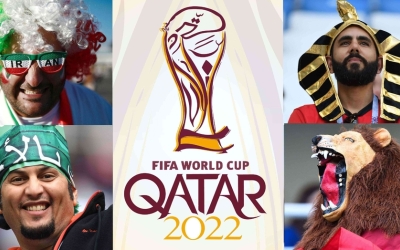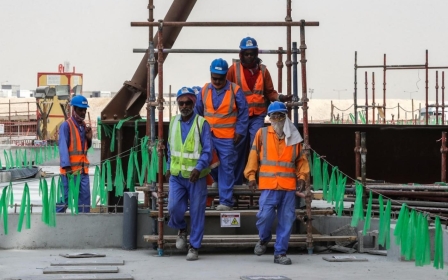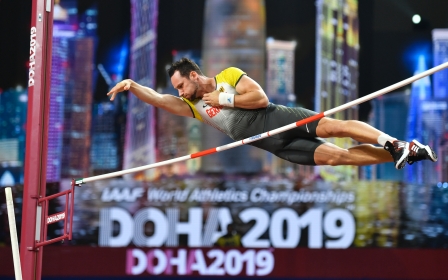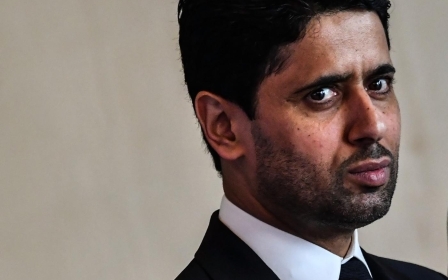FIFA announces pan-Arab national football tournament in Qatar
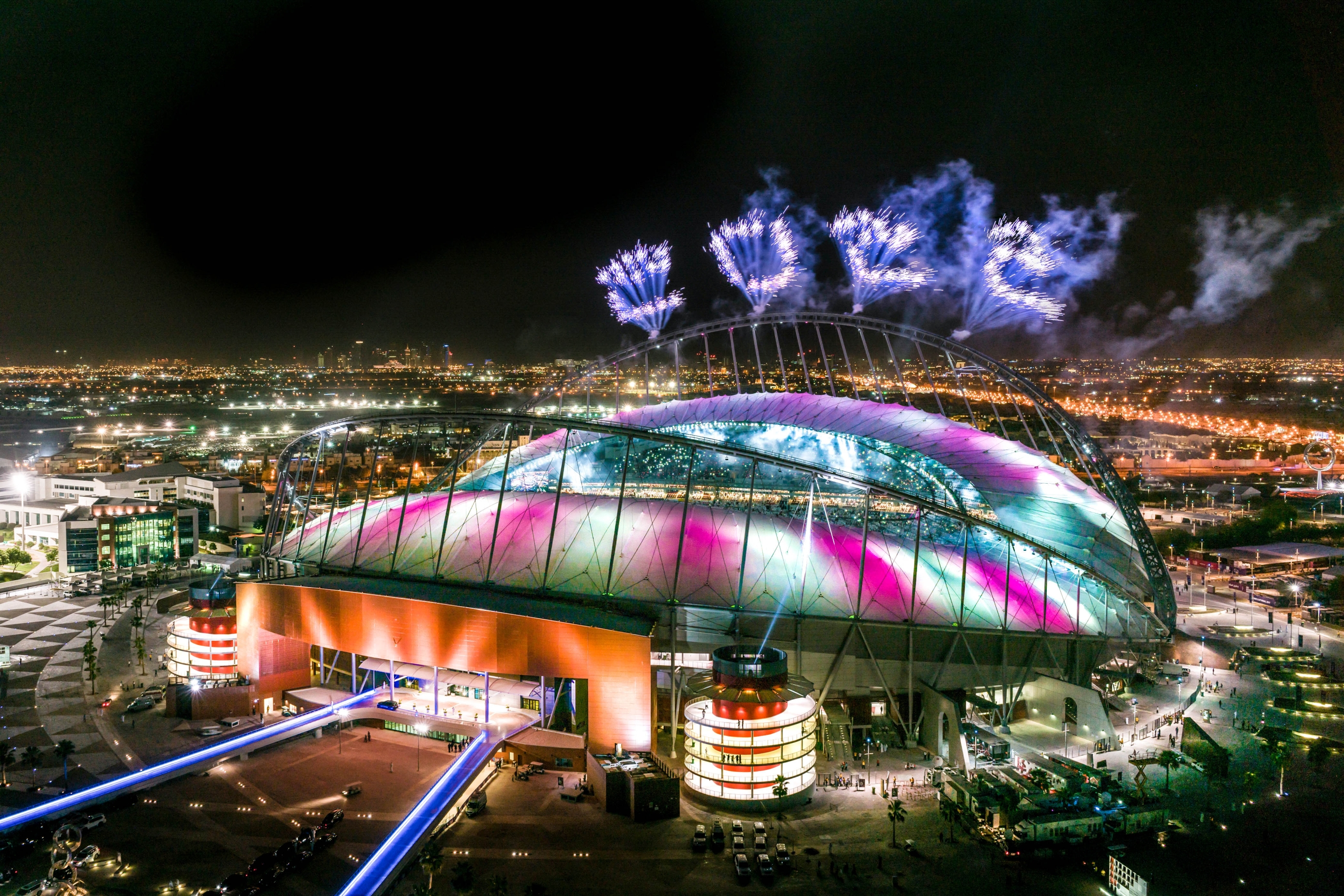
A new pan-Arab football tournament has been launched by the sport's governing body FIFA and will be played in Qatar in December next year.
The FIFA Arab Cup will take place from 1 to 18 December 2021, and will feature 22 national teams from the Middle East and North Africa.
“We are delighted that all 22 teams from across the Arab world have agreed to take part in the FIFA Arab Cup 2021... and we are looking forward to seeing the region’s best teams battle it out to see which nation will become champion,” FIFA President Gianni Infantino said.
Algeria, Bahrain, Comoros, Djibouti, Egypt, Iraq, Jordan, Kuwait, Lebanon, Libya, Mauritania, Morocco, Oman, Palestine, Qatar, Saudi Arabia, Somalia, Sudan, Syria, Tunisia, United Arab Emirates and Yemen were all confirmed to be taking part.
It will be the first major pan-Arab men’s football tournament since the Arab Nations Cup, which has been held on an irregular basis between 1963 and 2012.
“Through football, this tournament will unite over 450 million people from across the region, and we are confident that the FIFA Arab Cup will help to build excitement across the region as we edge ever nearer to hosting the first FIFA World Cup in the Middle East and Arab world in 2022,” Infantino said.
The inaugural Arab World Cup will act as a test for Qatar's infrastructure and planning, 11 months before hosting football’s biggest global tournament.
“We welcome our friends from the Middle East and the Arab world to join us in what will be an important milestone and a final test of our preparations, only one year away from us hosting the first FIFA World Cup in the region,” said Qatar Football Association President Sheikh Hamad bin Khalifa bin Ahmed Al Thani.
The Gulf country already had a taste of hosting a major global tournament last December, when it hosted the 2019 FIFA Club World Cup - a tournament consisting of winners of club competitions from six different continents.
It was won by Liverpool, who defeated Brazil’s Flamengo in the final at the Khalifa International Stadium in Doha. Egyptian star Mohamed Salah was among those to participate in the tournament.
It remains to be seen whether the likes of Salah, Chelsea’s Moroccan winger Hakim Ziyech and Manchester City’s Algerian forward Riyadh Mahrez will participate in the 2021 Arab Cup, given that it clashes with the European club football calendar.
It also takes place just days before the African Cup of Nations in January 2022.
Two years to go until World Cup in Qatar
Last Saturday marked exactly two years until the FIFA World Cup in Qatar is due to kick off at the Al Bayt Stadium in al-Khor in front of 60,000 fans.
Qatar’s Supreme Committee for Delivery and Legacy, in charge of planning and operations for the tournament, said that 90 percent of infrastructure for the event was complete.
To mark two years until the tournament, Amnesty International released a 35-page report entitled "Reality Check 2020: Countdown to the 2022 World Cup", which urged Doha to strengthen the enforcement of its labour reforms and protect the rights of migrant workers.
Positive reforms have too often been undermined by weak implementation and an unwillingness to hold abusive employers to account'
- Steve Cockburn, Amnesty
“It’s time for Qatar to send a clear signal that labour abuses will not be tolerated,” Steve Cockburn, Amnesty International’s head of economic and social justice, said.
“Qatar needs to do much more to ensure legislation has a tangible impact on people’s lives. Positive reforms have too often been undermined by weak implementation and an unwillingness to hold abusive employers to account.”
Twenty-five Amnesty offices around the world wrote to their national football associations to demand that they played an active role in pushing FIFA to help ensure the rights of migrant workers in Qatar are respected.
Doha has announced a number of reforms in recent years, including a fund to support the payment of unpaid wages and the abolition of the kafala system, which ties workers' visas to their employers.
However, a report by Human Rights Watch in August found that reforms have been largely unsuccessful, with many migrant workers still facing withheld salaries and poor working conditions.
Middle East Eye delivers independent and unrivalled coverage and analysis of the Middle East, North Africa and beyond. To learn more about republishing this content and the associated fees, please fill out this form. More about MEE can be found here.


